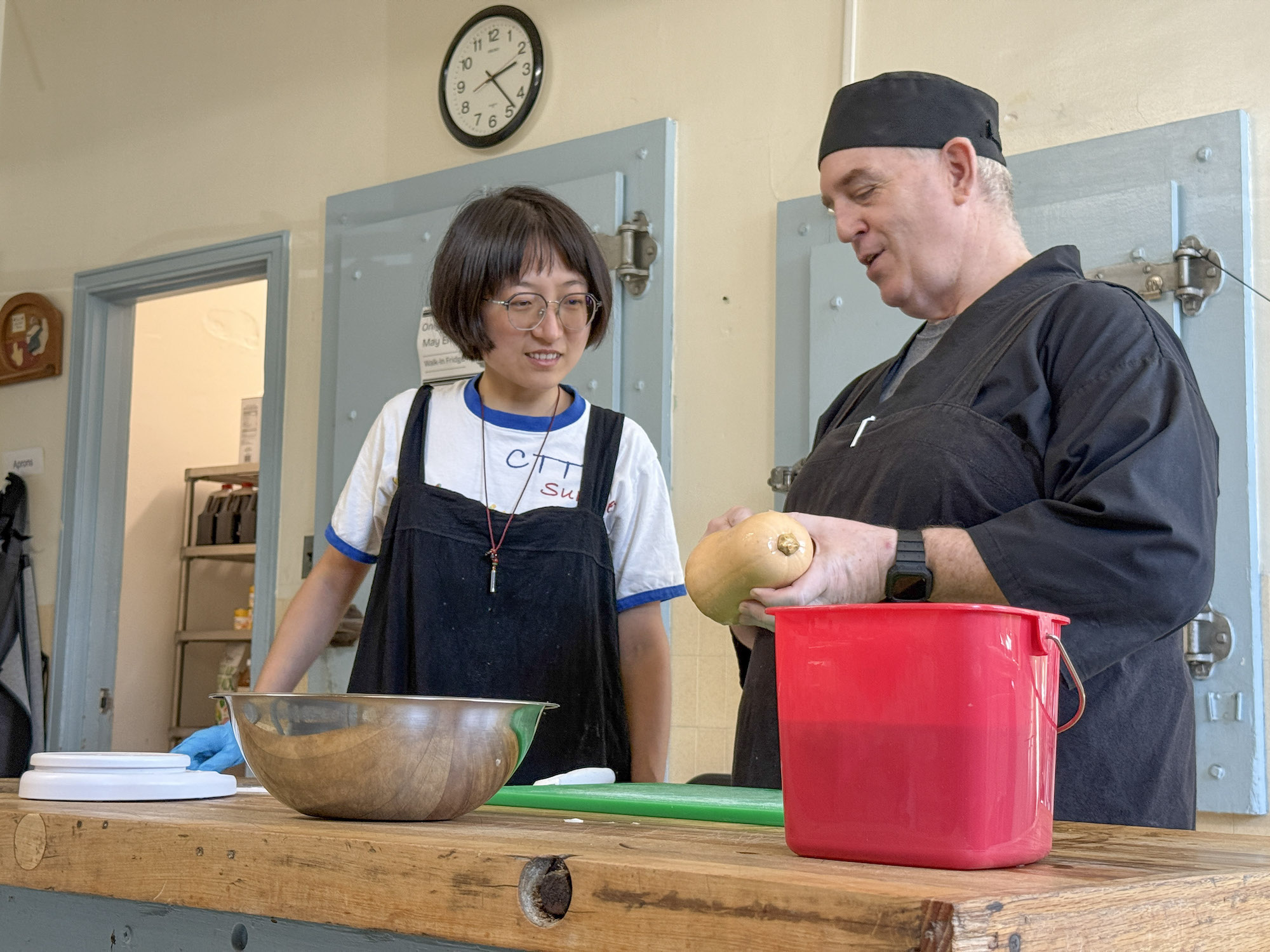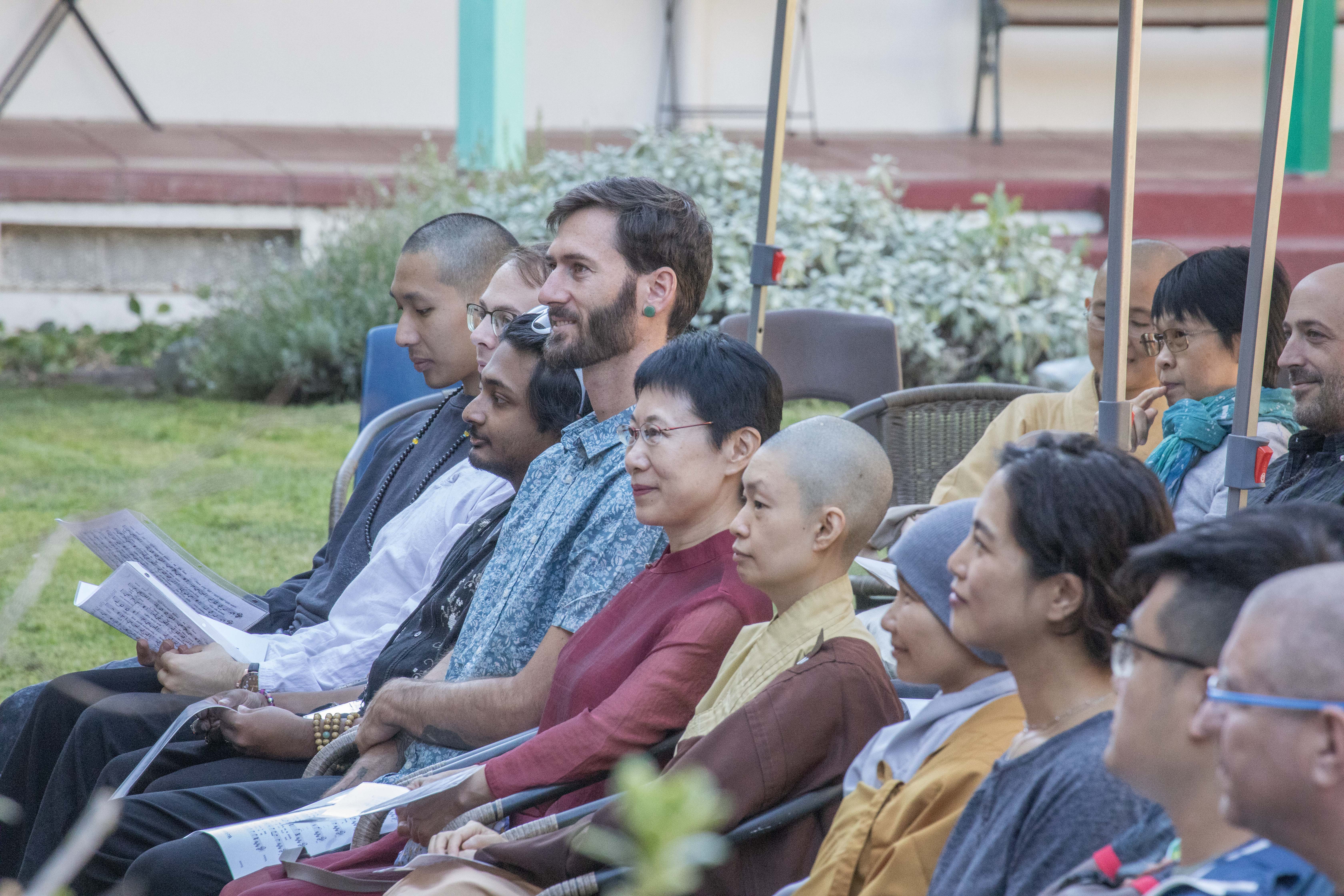
3 Unexpected Things to Replace Your Morning Coffee With
Waking up is hard! Some of us dive into a cup of coffee first thing in the morning; others prefer a nice cup of tea. Our DRBU students, however, may surprise you with these three effective ways to jumpstart the day.
Mantra Recitation
Norbel BA ‘22 shares: “I’ve heard about the Surangama mantra and its innumerable great benefits. People were saying that it had this super-energizing aspect. I didn’t know whether they were right or wrong at the time because I didn’t have any prior experience to compare it to. After some time since then, I can judge first hand myself. By chanting whole-heartedly (as if one were in a choir or assembly), I intuitively feel its efficaciousness. In any case, one morning I came across someone offering coffee and donuts. I didn’t take the offer, because from the recitation of the Surgamama mantra along with my breathing practice, my energy levels were already at a 10 (out of 10), and I was all too ready to start the day anyways.”
Try out reciting the Surangama mantra in Sanskrit or Chinese
Get a free download of the influential text that details the vast benefits of the Surangama mantra here.
Poetry
Justin MA ’20 begins his day in the company of Mary Oliver and Emily Dickinson: “Few things come close to sitting in the quiet of an early morning. The darkness is still, not yet stirred by the activities of the day. The cold air is restorative and contemplative, seeming to beckon something to come forth. One easily slips into some kind of unspoken beauty… I often read poems in the morning. They restore— or perhaps remind us of— something innately human.“It’s like taking vitamins,” one of my teachers, Dr. Martin Verhoeven, says. The peacefulness of the morning is a treat on top. Recently, however, I’ve turned my attention toward reading commentaries on Buddhist texts. I find that over time the gentle nature of such words, interfused with early morning meditation, silently opens up a space within me. In a world that’s becoming ever fast-paced, consistently doing something slow and small goes a long way.”
Ground your mornings with these contemplative poems:
The Journey Mary Oliver
I’m Nobody! Who are you? Emily Dickinson
Bowing
 Starting the day with a deep presence and centeredness, Quinn BA ’23 reflects on her experience of bowing: “When I started bowing first thing in the morning, it presented a lot of challenges. I struggled to wake up early and it pushed up against a lot of my old wounds. Often, it was hard just to concentrate and I found myself mostly processing my days: homework, relationships, memories. Over time, as my mind has settled a bit, I find sincerity and presence are more accessible during the practice. It pushes me to face myself head on. It pulls me out of ruts, lays bare my varied psychological manifestations, and harmonizes my mind and intentions throughout the day, bringing me closer to my vision. I find myself repeating the same mistakes day after day, and bowing helps incrementally change that. It transforms my relationship with myself and the rest of my daily practices and helps me be more centered and at ease. While it can be a really tough practice, it’s invaluable in my steps toward maturity as a human being.”
Starting the day with a deep presence and centeredness, Quinn BA ’23 reflects on her experience of bowing: “When I started bowing first thing in the morning, it presented a lot of challenges. I struggled to wake up early and it pushed up against a lot of my old wounds. Often, it was hard just to concentrate and I found myself mostly processing my days: homework, relationships, memories. Over time, as my mind has settled a bit, I find sincerity and presence are more accessible during the practice. It pushes me to face myself head on. It pulls me out of ruts, lays bare my varied psychological manifestations, and harmonizes my mind and intentions throughout the day, bringing me closer to my vision. I find myself repeating the same mistakes day after day, and bowing helps incrementally change that. It transforms my relationship with myself and the rest of my daily practices and helps me be more centered and at ease. While it can be a really tough practice, it’s invaluable in my steps toward maturity as a human being.”
Still curious? Read about two pairs of American monks who undertook incredible bowing pilgrimages, spanning hundreds of miles and hundreds of days.
https://tricycle.org/magazine/after-monastery/
https://www.awakin.org/people/hs/index.php?pg=essay


